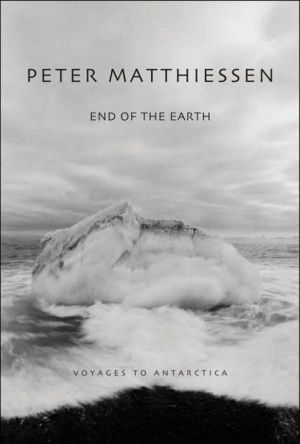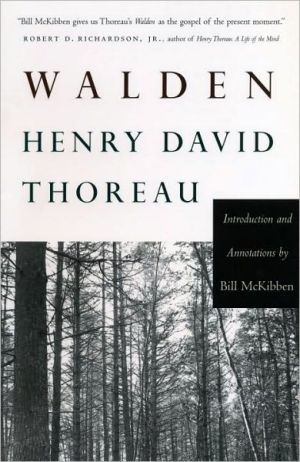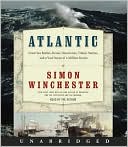End of the Earth: Voyages to Antarctica
Brilliantly attuned to the transience of nature and painfully aware of the precariousness of a polar environment facing global warming, Peter Matthiessen provides an exquisite account of his voyage through the islands surrounding Antarctica. In lyrical prose, Matthiessen describes the wildlife he encounters and the region it inhabits, along with historical information regarding the greatest pioneers and adventurers who preceded him.\ \ Matthiessen brings to life the waters of the richest...
Search in google:
Brilliantly attuned to the transience of nature and painfully aware of the precariousness of a polar environment facing global warming, Peter Matthiessen provides an exquisite account of his voyage through the islands surrounding Antarctica. In lyrical prose, Matthiessen describes the wildlife he encounters and the region it inhabits, along with historical information regarding the greatest pioneers and adventurers who preceded him.Matthiessen brings to life the waters of the richest whale feeding grounds in the world; the wandering albatross with its 11-foot wingspan arching through the sky; and the habits of every variety of seal, walrus, petrel, and penguin in the area, all with a boundless and contagious inquisitiveness. In addition to offering an unequaled naturalist’s perspective, Matthiessen’s story takes an unforeseen adventurous turn as he and the crew of the 384-foot research vessel are bombarded for two days by an unrelenting hurricane, injuring everyone on board. Magnificently written, End of the Earth evokes an appreciation and sympathy for a region as harsh as it is beautiful. The New York Times Matthiessen writes crusty, chiseled sentences that demand to be read slowly -- the perfect prose equivalent of the landscapes he's describing. The book is an account of two wildlife expeditions to Antarctica -- one starting out from Tierra del Fuego in 1998, the other from Tasmania in 2001 -- on which he served as a field leader. He's compressed an enormous amount of information into just over 200 pages: ruminations on geology, on ecology, on whaling and sealing, on the history of exploration and, especially, on polar wildlife. — Craig Seligman
\ The New York TimesMatthiessen writes crusty, chiseled sentences that demand to be read slowly -- the perfect prose equivalent of the landscapes he's describing. The book is an account of two wildlife expeditions to Antarctica -- one starting out from Tierra del Fuego in 1998, the other from Tasmania in 2001 -- on which he served as a field leader. He's compressed an enormous amount of information into just over 200 pages: ruminations on geology, on ecology, on whaling and sealing, on the history of exploration and, especially, on polar wildlife. — Craig Seligman\ \ \ \ \ Publishers WeeklyAttempts by humans to surmount nature at its most expansive and inhospitable is an almost guaranteed home-run story arc. But Matthiessen (The Snow Leopard, etc.) uses a clinical, detached voice to narrate his epic treks to Antarctica, making what should be a gripping page-turner a bland yawn. It's not his fault that a wicked storm limited his journey to the White South, disrupting the natural apex of the trip's trajectory. But Matthiessen would have been more effective in conveying the magnitude of his experiences if he had used words-not latitude and longitude coordinates-to narrate the action. He vaguely compensates for his stoicism by liberally citing and quoting from his Antarctic forebears, especially Ernest Shackleton and Roald Amundsen. This historical context is appreciated, particularly after slogging through languorous descriptions of animals, objects and elements that lack personification (a necessary tool when making "nature" the subject, protagonist and plot line of a book). Statements like, "Birds call us into the moment," made by an associate of Matthiessen's (but equally indicative of Matthiessen's philosophy) are not evocative hallmarks of the Antarctic quest, one of the most complex, majestic and challenging journeys that exist. Although he succeeds in prioritizing nature over narrative arc, it remains frustrating that such an accomplished author would not, in his 27th book, find a way to liven up antiseptic observations of albatrosses and hurricanes with an expansive, emotive voice befitting the scope of his travels. 8-page color photo insert not seen by PW. (Sept.) Copyright 2003 Reed Business Information.\ \








